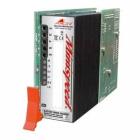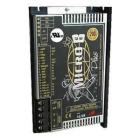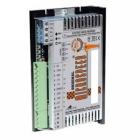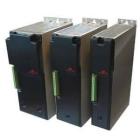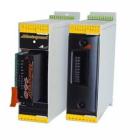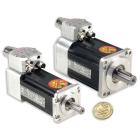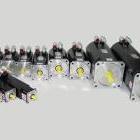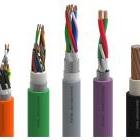- - CALL US ON - -
Tel. +44 (0)161 217 7100
Analogue Servo Drives
The term 'analogue servo' generally refers to drives (or amplifiers) that operate using an 'analogue' control circuit. Analogue servo drives are available for brushed and brushless servo motors. The control input is typically the traditional +/- 10V signal (for speed or torque) or a PWM interface.
Analogue drives still have a number of advantages over 'digital' servo drives such as very smooth low speed operation, in conjunction with permanent magnet DC motors and fast response time to the demand signal (no A to D conversion time). Analogue drives are still widely used on medical and metrology equipment, particularly in low-voltage applications.
For further details of the advantages and disadvantages of 'analogue servos' please do not hesitate to contact us.

